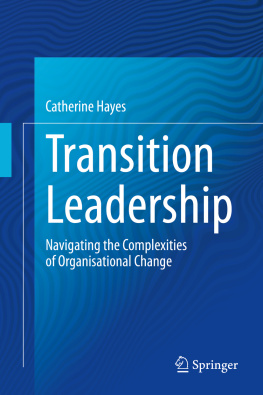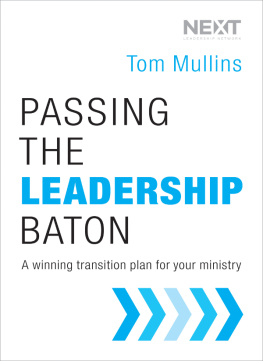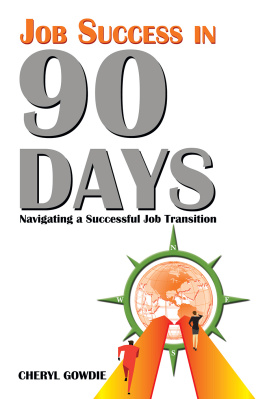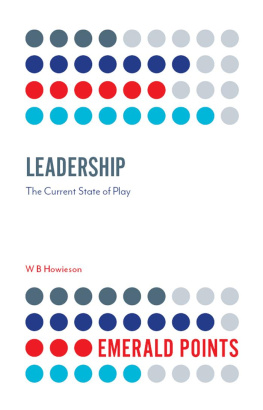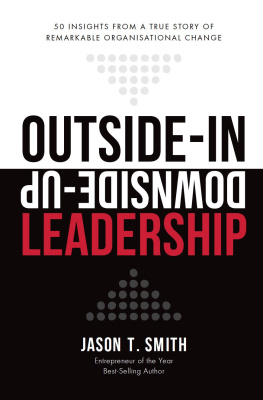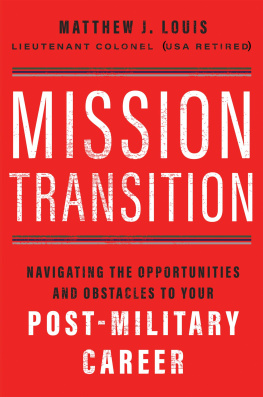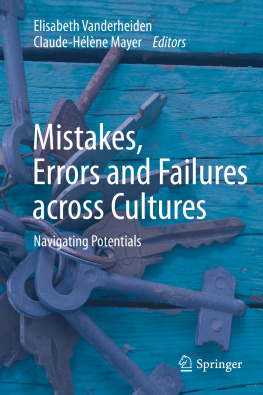Catherine Hayes - Transition Leadership: Navigating the Complexities of Organisational Change
Here you can read online Catherine Hayes - Transition Leadership: Navigating the Complexities of Organisational Change full text of the book (entire story) in english for free. Download pdf and epub, get meaning, cover and reviews about this ebook. year: 2020, publisher: Springer Nature, genre: Romance novel. Description of the work, (preface) as well as reviews are available. Best literature library LitArk.com created for fans of good reading and offers a wide selection of genres:
Romance novel
Science fiction
Adventure
Detective
Science
History
Home and family
Prose
Art
Politics
Computer
Non-fiction
Religion
Business
Children
Humor
Choose a favorite category and find really read worthwhile books. Enjoy immersion in the world of imagination, feel the emotions of the characters or learn something new for yourself, make an fascinating discovery.
- Book:Transition Leadership: Navigating the Complexities of Organisational Change
- Author:
- Publisher:Springer Nature
- Genre:
- Year:2020
- Rating:4 / 5
- Favourites:Add to favourites
- Your mark:
- 80
- 1
- 2
- 3
- 4
- 5
Transition Leadership: Navigating the Complexities of Organisational Change: summary, description and annotation
We offer to read an annotation, description, summary or preface (depends on what the author of the book "Transition Leadership: Navigating the Complexities of Organisational Change" wrote himself). If you haven't found the necessary information about the book — write in the comments, we will try to find it.
Catherine Hayes: author's other books
Who wrote Transition Leadership: Navigating the Complexities of Organisational Change? Find out the surname, the name of the author of the book and a list of all author's works by series.
Transition Leadership: Navigating the Complexities of Organisational Change — read online for free the complete book (whole text) full work
Below is the text of the book, divided by pages. System saving the place of the last page read, allows you to conveniently read the book "Transition Leadership: Navigating the Complexities of Organisational Change" online for free, without having to search again every time where you left off. Put a bookmark, and you can go to the page where you finished reading at any time.
Font size:
Interval:
Bookmark:
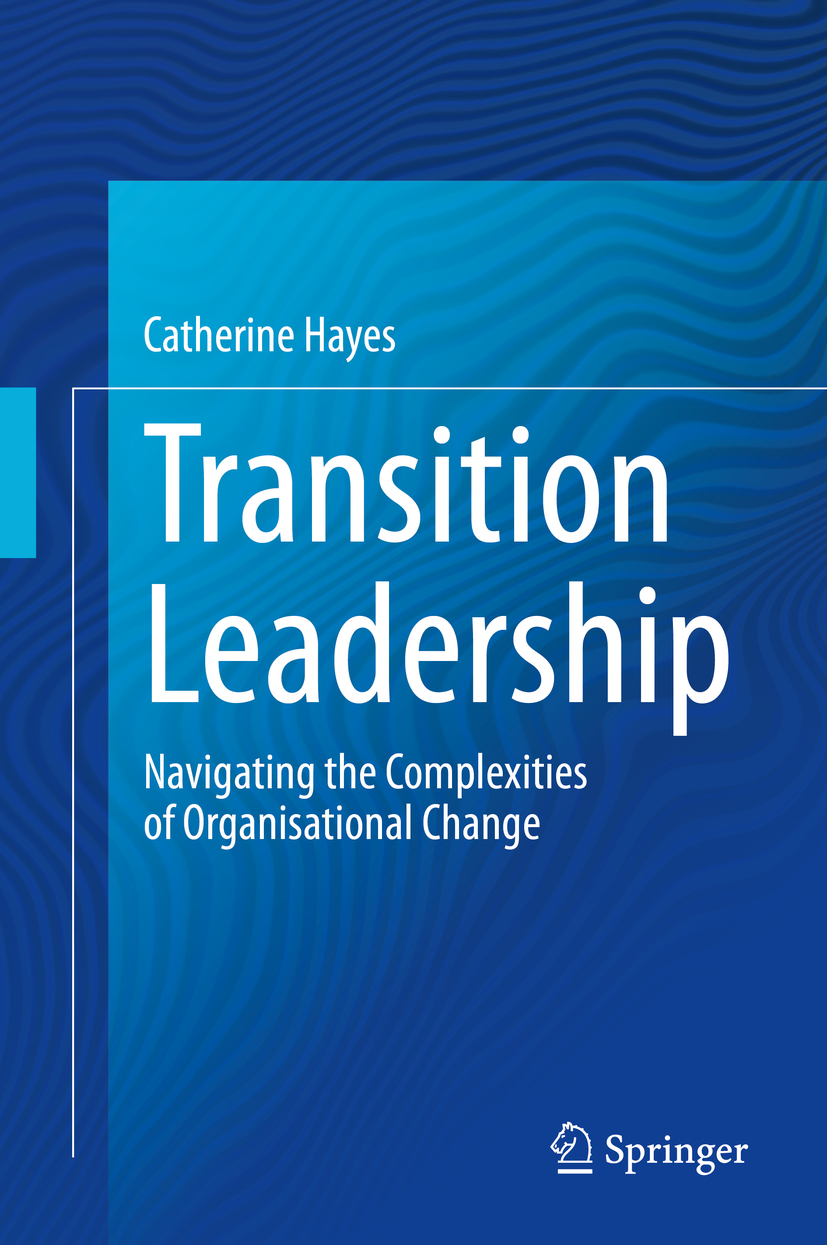

This Springer imprint is published by the registered company Springer Nature Switzerland AG
The registered company address is: Gewerbestrasse 11, 6330 Cham, Switzerland
This text is dedicated to all leaders and change professionals who are faced with the task of supporting organisations to navigate the multifaceted dynamics of todays continuously changing environments.
This book is the result of an evolving journey of discoveries based on 30 years of organisational development practice and applied research. The content has been derived through weaving Buddhist philosophy and clinical and business psychology practices whilst working in partnership with executives, leaders and change professionals across a range of different industries.
Supporting individuals, teams and organisations to navigate transitions has evolved into becoming a vocational life purpose. My curiosity and passion for transitions began in 1990, experiencing one organisational change project fail after another. I watched leaders with 20-year track records of success stumble and fall whilst trying to navigate transformation challenges. My observations revealed how many resources were being wasted, as leaders unintentionally derailed their careers and the broader challenging impact this had on the functioning of their organisations.
The questions that provoked curiosity and intrigue in 1990 were: What makes the wheels fall off well thought through transformation strategies when talented, intelligent leaders try to implement them? What happens in the space between ideas and implementation that seems so complicated, messy and challenging that causes a great deal of suffering for organisations?
Switching a technology career for an organisation development career in the early 1990s, I realised that the challenges organisations were facing were all related to people, unintentionally getting in their own ways. After studying two training and development and British Psychological Society qualifications, I discovered that the methods and best practices that I was taught at the time were overly simplistic. At the time, the approaches and theories that I was studying and trying to put into practice were out of alignment with what I was experiencing in reality. Trying to understand so many unknowns, I began a search to see if I could shine more light into the why, what and how of organisational change.
My transition exploration journey began with neurolinguistic programming (NLP) whilst it was useful for seeing repeating patterns; the question I couldnt answer was why. Why do functional and dysfunctional patterns in thinking and behaviour occur, and what causes them?
The next stops on the journey of discovery were Gestalt, Transaction Analysis and Humanistic psychologies. These were closely followed by an MSc in Change Agent Skills and Strategies, where I explored a range of action research methods and approaches. At the time, responsible for an infrastructure organisation development agenda in Morgan Stanley Investment Bank, I began conducting participatory action research projects with colleagues. We uncovered many causes to organisational transformation challenges, and yet, I still had many unknown questions related to the why that I couldnt answer.
Integrating 10 years of research with business development and transformation experiences, I began to create transition leadership methods and approaches supporting leaders and line managers to develop new capabilities whilst practically implementing their change agendas. Our efforts evolved into creating a development practice that at the time we labelled as developing whilst delivering.
In 2004, I was presented with an exciting opportunity to create a new global OD function for Schroders asset management, and I utilised my research and development approaches to support leaders to solve a range of complex business challenges. As part of the process of designing and implementing a new global OD agenda, I became interested in systemic group development. My curiosities opened up a new development pathway, where I incorporated Systems-Centred therapy approaches into my organisational practice.
In 2007, my applied transition research and development approach drew interest from Cass Business School, and I was invited to join the visiting faculty as a transition specialist practitioner. In partnership with academic and practitioner colleagues, we formed a centre to support change practitioners to develop capabilities to work with transitions. Part of the programme was to design and facilitate the Transition Leadership Series for Executive MBA students. This project coincided with switching the direction of my career into setting up a transition consulting practice.
At the time, I had formed the belief that what organisations lacked was transition leadership capabilities. This belief was shattered, as I began working with organisations across different industry sectors. What I had overlooked in my own practice was institutional knowledge. As a transition consultant, I uncovered another core challenge, that leaders did not understand the operational functioning of their organisations. With the lack of insight into operational functioning combined with applying procedural change methods, leaders unintentionally got in their own ways. The outcomes resembled as though they were trying to drive blindfolded with the brakes on. In practice, leaders made their journeys of navigating transitions more complicated and messy than they needed to be.
My discoveries evoked a new curiosity that related to the Buddhist concept of impermanence, a philosophical concept of life being a process of continuous change that is a given in Buddhist culture. It was a philosophical concept that seemed to be somewhat non-existent in our control-orientated Western mind-set. Intrigued to understand the constructs and underlying functioning of the Western mind-set, I began what became a 4-year journey of studying Buddhist psychology and Core Process Psychotherapy.
Font size:
Interval:
Bookmark:
Similar books «Transition Leadership: Navigating the Complexities of Organisational Change»
Look at similar books to Transition Leadership: Navigating the Complexities of Organisational Change. We have selected literature similar in name and meaning in the hope of providing readers with more options to find new, interesting, not yet read works.
Discussion, reviews of the book Transition Leadership: Navigating the Complexities of Organisational Change and just readers' own opinions. Leave your comments, write what you think about the work, its meaning or the main characters. Specify what exactly you liked and what you didn't like, and why you think so.

